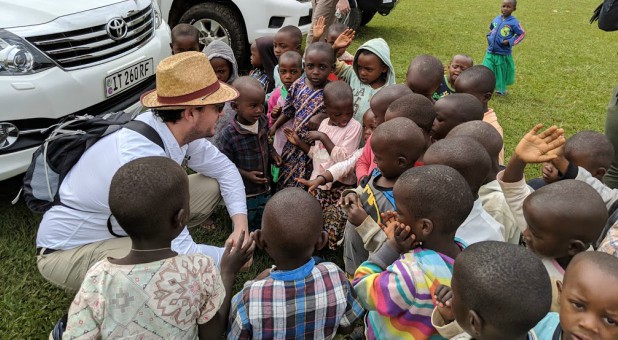Are You a Christian or American First?
It’s a quiet night in Huye, Rwanda, with mosquitoes buzzing and stars twinkling. The gorgeous countryside is alive with the warmth of contentment. It’s an odd juxtaposition considering Rwanda’s history.
The crickets chirp as a World Vision USA representative sits down to discuss the sobering reality that occurred in the country 25 years ago next month: All-out genocide.
How can someone forgive rape, abuse, murder? How can the Holy Spirit so radically transform a country over a quarter century? How can Christians take this knowledge, say “Never again,” and then let history repeat itself in other countries?
Brian Duss of World Vision USA spoke with the Charisma News podcast to discuss these questions and more.
“There are so many questions that I can’t come up with the perfect answer for, but I’m really drawn back to what Scripture says,” Duss says. “And one of my favorite verses is, ‘To whom much is given, much is required.'”
Duss was raised by a Ukrainian refugee who was born in a displaced persons camp. Duss’ mother was a nurse. Duss was taught early on to speak up for the victimized and downtrodden.
“I’ve been given a voice, I’ve been given certain skills, I’ve been given certain resources, and I put those to work,” Duss says. “It doesn’t mean that I don’t think about some of those challenging conversations about why things happen. But things have happened, and I think God has given me an opportunity to show love to people. Now the question is, am I going to do it or not?”
But for many Americans, expanding faith beyond our country’s borders presents both challenge and conviction.
Listen to the podcast to hear Duss describe how people of faith can get involved with the global body of Christ and follow the Great Commission.
For more stories from On the Ground in Rwanda, click below:
“How a Former Genocide Perpetrator Now Prophesies Through Music“
“How This Faith-Based Organization Changed an Entire Village“
“How Holy Spirit Reconciled an Entire Nation Through This Critical Biblical Principle“















































